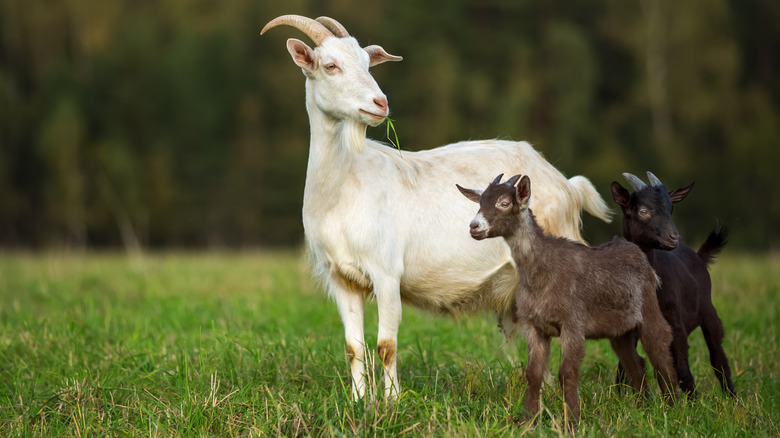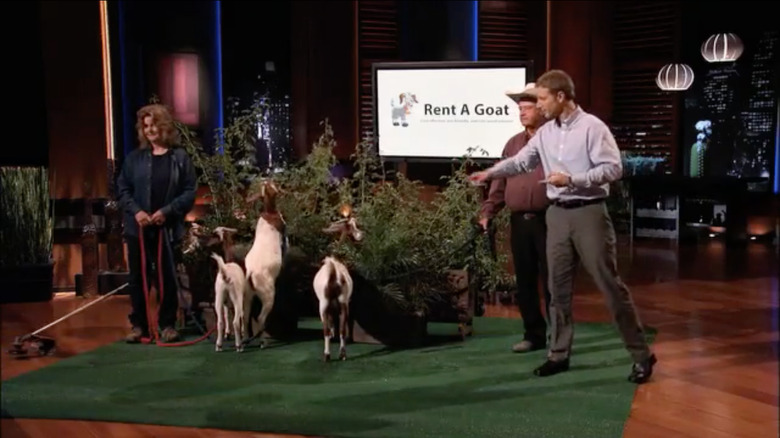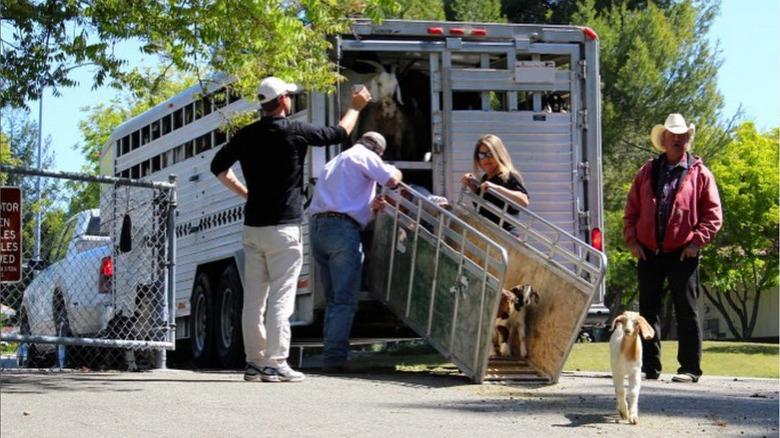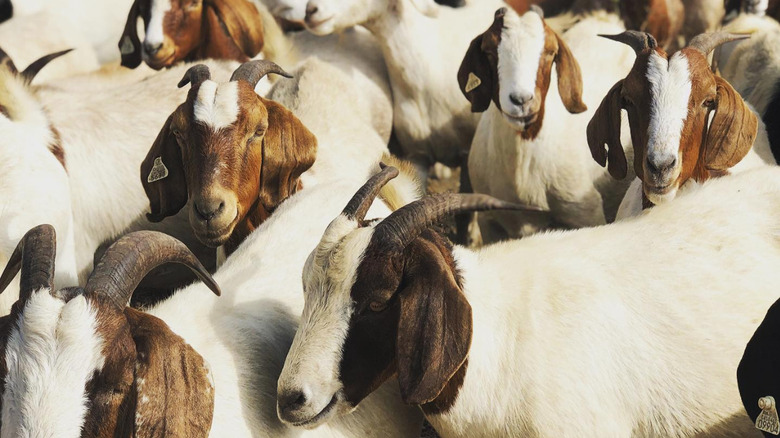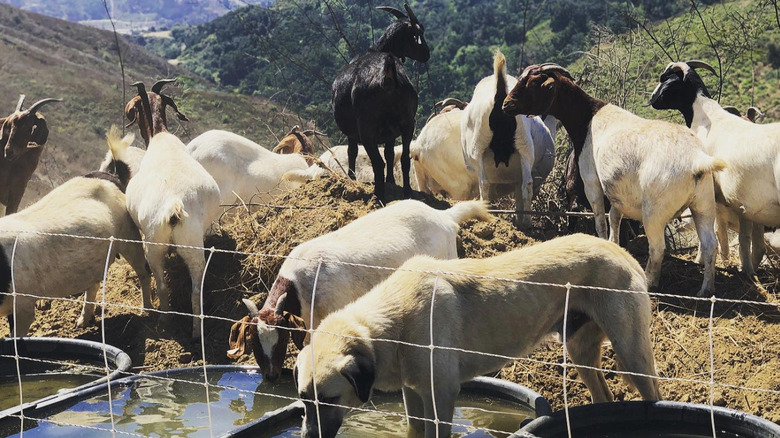Whatever Happened To Rent A Goat After Shark Tank Season 5?
Caring for your lawn often comes with quite a bit of struggle. Gas-powered mowers are loud and bad for the environment, electric trimmers cause surges in your monthly bill, and weed removal requires either a wealth of hazardous chemicals or significant physical labor. For the eco-conscious consumer, all of these methods are far from ideal. Luckily, Mike Canaday and Matt Richmond came up with a rather unconventional solution that benefits both the consumer and the laborer: goats.
They presented this idea over a decade ago during Season 5, Episode 5 of "Shark Tank." Their pitch was quite memorable — not because there was a major business deal, but because they brought along their barnyard co-workers for a bit of a demonstration. Unfortunately, their petting zoo-esque pitch didn't quite make up for their shaky business model. In the decade since Season 5 of "Shark Tank," however, public knowledge and concern around the environment has grown, meaning Rent A Goat likely has a much larger base of potential customers than it did in 2013.
What happened to Rent A Goat on Shark Tank?
Rent A Goat sounds exactly like what it is. Customers reach out to the business to rent goats for a limited amount of time, and once their time is up, the goats are returned to the farmer. In this time, the goats roam and tackle just about any potential lawn care woes — weeds, tall grasses, lack of fertilization — and they do so without releasing any harmful chemicals or requiring excess manpower.
During their pitch, entrepreneur Matt Richmond and farmer Mike Canaday threw out quite a few numbers that predicted future profits, but they didn't have much actual evidence to back everything up. Canaday had been using to service to rent out his own goats to consumers to mow their lawns and routinely earned around $600,000 a year, but the pair was pitching a completely different business model that had yet to be tested. They were asking for $150,000 for 25% of the business, but all of the stars of "Shark Tank" ultimately passed on the pair's offer because the business was so new.
After Shark Tank
The founders of Rent A Goat might not have made a deal with any of the Sharks, but they did start taking on clients with the model they discussed on the show. Instead of simply connecting landowners and goat farmers, the company transitioned into more of a full-service business. It started renting out goats in northern California, but it has since expanded to cover the entire state. This expansion hasn't gone any further, however, so potential customers outside state lines are out of luck.
The founders of Rent A Goat certainly weren't the first to think of this concept — Matt Richmond even stated that he got the idea from farmers after a trip to Moldova — but they helped to popularize it in the United States. Now, goat rental services are fairly common across the country. While this is a major win for the environment, it certainly makes monopolizing the idea and claiming profits for one business difficult. Notably, the business will now have to compete with others if it chooses to expand to other parts of the country.
Is Rent A Goat still in business?
Despite the fact that Mike Canaday and Matt Richmond didn't receive a deal on "Shark Tank" and quickly came face-to-face with some competition in the industry, Rent A Goat still appears to be in business. On the company's website, it states that it now services the entirety of California, from the northern mountains to the southern deserts. It also employs not only its advertised 2,500 goats but also around 500 sheep to tackle grasses and herding dogs to help keep everything under control.
To offset carbon emissions from transportation, the company requires the area of service to be at least 5 acres, helping to guarantee no gas is wasted unless the service is making a positive environmental impact. This requirement likely isolates Rent a Goat from individual consumers looking for alternative methods of lawn care, but it still allows it access to large clients with massive swaths of land, leaving it with a more niche market than some of the other ideas pitched on "Shark Tank."
What's next?
The owners of Rent A Goat don't appear to be switching up their business model anytime soon, so it's likely that their main focus is finding new clients and ensuring existing clients stay loyal to their business rather than running to a competitor. Grass and weeds grow back, so it probably has a recurring list of clients that it visits once the properties start to look a bit unkempt again.
While the concept might seem a bit bizarre at first glance, renting goats for lawn care has actually evolved into an industry in and of itself. Websites like hiregoats.com even act as search engines to match property owners with goat herders, essentially what Rent A Goat was doing before it decided to go direct-to-consumer. The Sharks were probably smart not to invest — this business is fairly small because of the number of potential clients and not particularly scalable due to the annoyances of transportation — but it still seems like the founders have still found success building Rent A Goat into a company that's beneficial for the environment.
